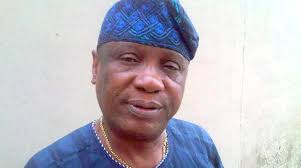
“It is totally false to suggest, as we are apt to do, that Nigerians are fundamentally different from any other people in the world. Nigerians are corrupt because the system under which they live today makes corruption easy and profitable; they will cease to be corrupt when corruption is made difficult and inconvenient….The trouble with Nigeria simply and squarely is a failure of leadership. There is nothing basically wrong with the Nigerian character.
There is nothing wrong with the Nigerian land or climate or water or air or anything else. The Nigerian problem is the unwillingness or inability of its leaders to rise to the responsibility, to the challenge of personal example which are the hallmarks of true leadership… I am saying that Nigeria can change today if she discovers leaders who have the will, ability and the vision”, Chinua Achebe, in his book, The Trouble With Nigeria.
“Nigeria could, however, follow another path. Its potential is huge. Its tremendous wealth, if properly channeled, holds out the hope that a stable government could unleash the unquestioned energy and talent that pulsates through the rich ethnic mosaic. The human capital is there. Thousands of Nigerian professionals are well educated and skilled enough to drive the country forward. Anyone who visited Nigeria’s markets and witnessed its people endure the constraints of bad government and the sinking economy can testify to the country’s resilience.
“Nigerians spend a good part of their lives trying to get the better of the government for their own benefit or that of their family, their village, or their region. Rare is the head of state who acts on behalf of the entire nation. The people are not so much governed as ruled. It is as if they live in a criminally mismanaged corporation where the bosses are armed and have barricaded themselves inside the company safe. Nigeria’s leaders, like the colonialists before them, have sucked out billions of dollars and stashed them in Western banks”, Karl Maier, in his book, This House Has Fallen—Nigeria In Crisis.
IN the last couple of years, Nigeria
has been confronted with enormous national crisis that could only be compared with the crisis of the 1960s, which eventually led to the civil war. In fact, if one reflects on what the country went through from after the annulment of the June 12, 1993 presidential election up to the demise of General Sani Abacha, one must thank God that Nigeria still survives as one united nation.
Nigeria’s problem is not just economic. Indeed, it is largely political. Nigeria is still undergoing the crisis of nation building.
It is important that Nigeria policy makers appreciate the enormity of the crisis of nation-building still staring at us as a nation. I don’t like to sound alarmist or pessimistic but some of the unresolved conflicts in our country have the potential of escalating into unimaginable proportions at any given time.
The events leading to the return to democracy in Nigeria could only be understood as a divine intervention. Before then the fate of Nigeria, as a country, was precariously hanging in the balance. The country was a pariah nation among the international community. The economy was in doldrums.
The Obasanjo presidency experienced chaos in many fronts. These included communal violence, notable cases include Ife-Modakeke, Umeleri-Agulri, Huasa-Zango-Kantaf, Kuteb-Jukun clashes, etc. There was also the Bakassi issue, the Niger Delta crisis and ethnic separatism.
The second major crisis of the Obasanjo presidency was the issue of oil subsidy which was triggered by the Nigeria Labour Congress, NLC, then led by Comrade Adams Oshiomhole. The strike action paralysed the country for days, if not weeks. Then President Olusegun Obasanjo was forced to set up a special committee on the review of petroleum products supply and distribution. The committee was inaugurated on August 14, 2000 by the then Secretary to the government of the Federation, Chief Ufot Ekaette.
To be concluded…
END

Be the first to comment